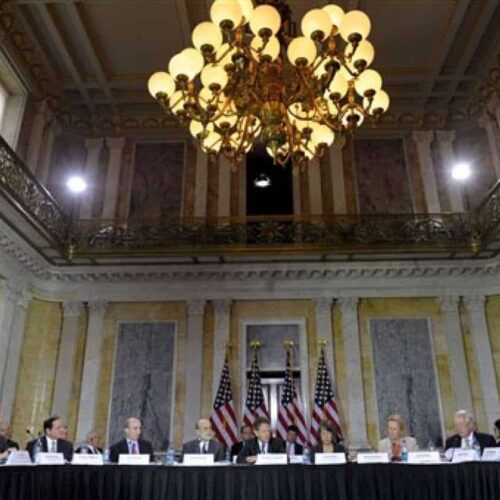Introduction
Another empty seat – Jeffrey Goldstein, the Treasury undersecretary for domestic finance, is the latest in a series of top financial regulators leaving the administration.
Goldstein told the Wall Street Journal he will depart next month after playing a key role in setting up the new Financial Stability Oversight Council to monitor systemic risk, as required by the Dodd-Frank financial reform law. Unnamed sources told the newspaper that Obama would nominate a replacement shortly, but Republicans in the U.S. Senate have blocked several administration nominees for other positions.
Treasury already has several other senior jobs vacant, the Federal Reserve has two open seats on its board of governors, and the new Consumer Financial Protection Bureau lacks a director.
Gun shy or underfunded? – The Securities and Exchange Commission and Justice Department have been criticized for being gun shy in prosecuting top Wall Street executives for the 2008 financial crisis, while defenders say the real problem is a lack of money. The SEC, for example, has staff travel restrictions that limit investigations to companies near existing SEC offices. It also has to limit the number of expert witnesses it hires for cases.
Chad Johnson, a lawyer with Bernstein Litowitz Berger & Grossmann, writes in a Harvard financial regulation blog, that big institutional investors and pension funds are in the best position to punish fraudulent behavior by banks and Wall Street firms. Big investor funds can file private lawsuits on behalf of defrauded investors and “send a strong message that such misconduct will not be tolerated,” he writes.
Wall St. fundraising – Big bankers sent their regrets instead of checks to President Barack Obama’s Wall Street fundraising dinner last week.
Missing from the $35,800 per head dinner were the heads of JPMorgan Chase & Co., Goldman Sachs and Citigroup, reports the New York Times’ Dealbook. “It would be bad for business” to publicly support Obama the way they did in 2008 with campaign contributions, one bank chief executive told the newspaper. But some bankers say they still plan to vote for Obama, saying the president’s bark has been much worse than his bite when it comes to regulatory overhaul.
View from a small bank – A top executive with a small Louisiana-based bank says he has no sympathy for mega-banks who say tougher capital requirements means they will lose business to overseas banks.
“It is OK for them to operate in a city like Omaha with 4 percent capital, but the local community banks that they are competing with are required to have 10 percent capital ratio,” writes Rusty Cloutier, chief executive of MidSouth Bancorp Inc. “When you hear them crying about how unfair the world is to them, just remember how many of their peers are at their vacation homes this summer enjoying the backing that you as a taxpayer put up for their lifestyle. Of course they would tell you that only Fannie and Freddie had a government guarantee, but I would ask how many large banks defaulted on their preferred stock after the government made a capital injection.”
Read more in Inequality, Opportunity and Poverty
State Integrity 2012
State Integrity Investigation highlighted ethics problems plaguing Virginia and its governor
Financial Reform Watch
New Jersey: Best score in the country
With a B+, the Garden State receives the highest score in the U.S., an 87


Join the conversation
Show Comments